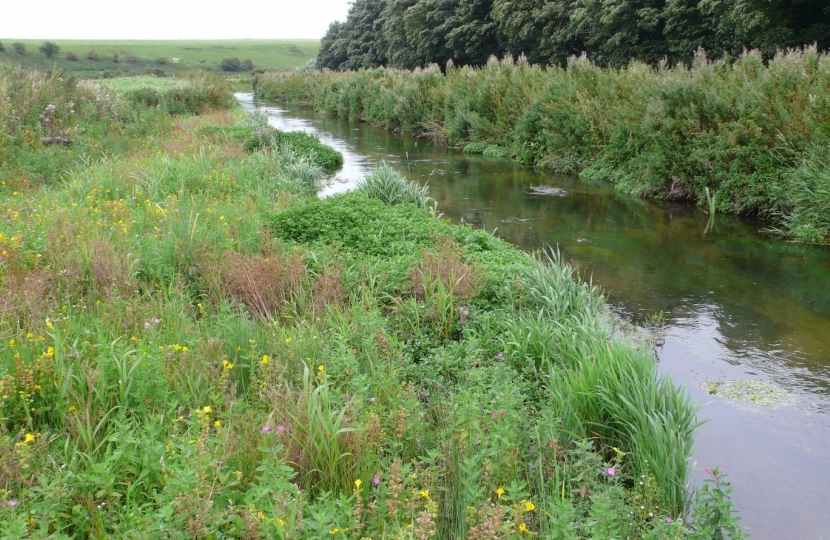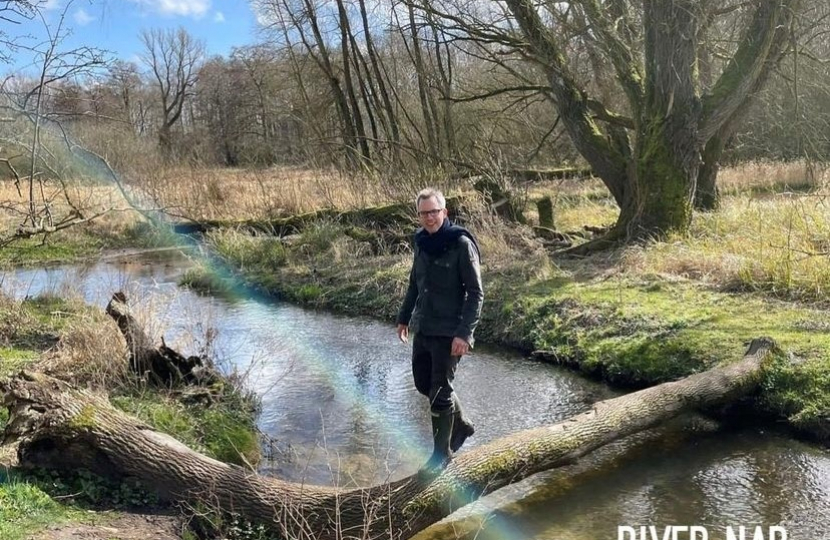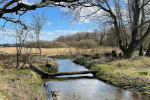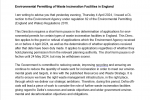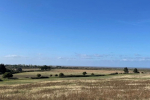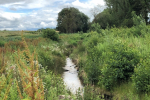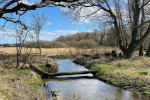Being Norfolk born and bred, James is committed to championing our countryside. That means record investment and tougher penalties to protect chalk streams & coastal waters; working with the Environment Agency and others on improved flood defences and response; protecting wildlife and habitats; and backing our farmers.
Farmers and growers in North West Norfolk do a vital job in providing the nation with high-quality food while caring for our countryside. Farming and agriculture is a key part of Norfolk’s economy and the best way to support Norfolk farmers and growers is to buy British produce.
Chalk streams
England is home to 85% of the world's chalk streams and North West Norfolk is blessed with a number that we have a special responsibility to protect and enhance including the Nar, Burn, Heacham, Ingol, Babingley, and Gaywood.
The rivers of Norfolk are unique due to their underlying chalk bedrock, which stretches across eastern England. The permeable chalk acts as a sponge, absorbing rainfall and filtering the water, before it is released though springs. Their clear water flows from chalk aquifers - stores of underground water that are replenished when it rains. The Norfolk Rivers Trust has done much to restore these valuable habitats and eco-systems.
The unacceptable use of storm overflows releasing into rivers and coastal waters must stop. Under Labour only 7 per cent of overflows were monitored - now it is 100 per cent which enables action to be taken. James has campaigned to protect chalk streams and through the Environment Act 2021, James backed a record £56 billion investment by water companies into making improvements, tough fines and unlimited financial penalties Now water companies and regulators must be held to account to deliver real improvements for our constituents.
James used his membership of the Public Accounts Committee to press the Environment Agency and Defra on the state of chalk streams following the Rivers Trust's report "Chalk Streams in Crisis - A call for drought action now". The Chief Executive of the Environment Agency said chalk streams face a "clear and present danger".
James is pressing for the wetland area at Ingoldisthorpe which works as a natural treatment plant cleaning millions of litres of water a day before it is returned to the River Ingol to be the first of many projects. This project created in a partnership between the Norfolk Rivers Trust and Anglian Water is the first of its kind in England. Water passes through four interlinking pools in the wetland and is further filtered and cleaned by 25,000 wetland plants. These plants purify the water.Once the water has filtered through each of the pools, it is then returned to the River Ingol, one of North West Norfolk's chalk streams.
Conservation
Over centuries, the rivers have made way for agriculture and have been straightened and dredged, drained and embanked. Fallen trees, an important source of shelter and food, have been removed, and in other places trees have been planted to purposefully drain springs and wetlands. Reversing these processes is difficult, but effective, and can be achieved in places without a loss of agricultural productivity. In other places on the Nar and Babingley, Wensum and Glaven, Stiffkey and Burn, hidden stretches of these magical and unique habitats remain.A variety of conservation, education and community projects have taken place on nine chalk-fed rivers in Norfolk as part of a £1.3 million partnership between the Norfolk Coast AONB, Norfolk County Council, The Wild Trout Trust and local Environment Agency representatives.
Read more about specific projects below:

